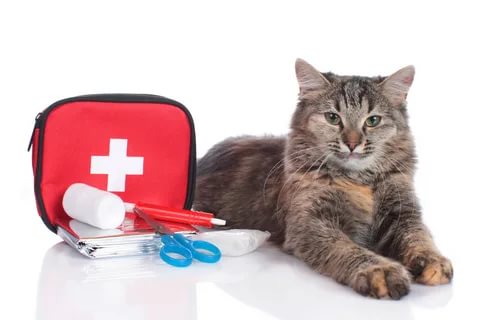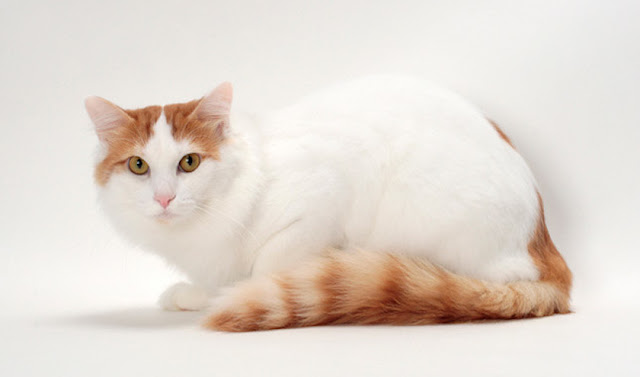The feline's yowl is her method of speaking with individuals. Cats howl for some reasons—to make proper acquaintance, with request things, and to disclose to us when something's incorrectly. Howling is an intriguing vocalization with regards to that grown-up cats don't really whimper at one another, exactly at individuals. Little cats yowl to tell their mom they're cold or hungry, however when they get somewhat more established, cats presently don't howl to different cats. Be that as it may, they keep on yowling to individuals for the duration of their lives, likely on the grounds that howling gets individuals to do what they need. Cats additionally yowl—a sound like the howl however more drawn out and melodic. Not at all like whimpering, grown-up cats do yowl at each other, explicitly during rearing season.
When does whimpering become exorbitant? That is an extreme call to make, as it's actually a private matter. All cats will yowl partly—this is ordinary correspondence conduct. However, a few cats yowl more than their pet guardians might want. Remember that a few types of cats, strikingly the Siamese, are inclined to exorbitant whimpering and yowling.
Why Cats Meow
These are the most widely recognized reasons why cats yowl:
To welcome individuals. Your feline can be required to yowl in hello when you return home, when she gets together with you in the house and when you address her.
To request consideration. Cats appreciate social contact with individuals, and some will be very vocal in their solicitations for consideration. The feline might need to be stroked, played with or basically conversed with. Cats who are left alone for significant stretches of time every day might be bound to whimper for consideration.
To request food. Most cats like to eat, and they can be very requesting around eating times. A few cats figure out how to whimper at whatever point anybody enters the kitchen, simply on the off chance that food may be impending. Others yowl to awaken you to serve them breakfast. Cats likewise figure out how to ask for human food by yowling.
To request to be allowed in or out. Whimpering is the feline's essential method to tell you what she needs. On the off chance that she needs to head outside, she'll probably figure out how to howl at the entryway. Similarly, if she's outside and needs access, she'll howl to get you to allow her to back inside. In case you're attempting to progress a feline from being indoor-outside to living only inside, you might be in for a time of perpetual whimpering at entryways and windows. This is a troublesome change for a feline to make, and it will probably require weeks or even a very long time for the howling to stop.
Older cats experiencing mental disarray, or intellectual brokenness, may yowl on the off chance that they become confused—a successive indication of this catlike form of Alzheimer's Disease. For more data, if it's not too much trouble, read our article on Behavior Problems in Older Cats.
To discover a mate. Reproductively unblemished cats are bound to yowl. Females yowl to publicize their receptivity to guys, and guys yowl to access females.
Take Your Cat to the Veterinarian
A feline who whimpers a great deal ought to be checked completely by a veterinarian to guarantee an ailment isn't the reason for the feline's trouble. Various infections can make cats feel uncommonly eager, parched, anxious or bad tempered—any of which is probably going to incite whimpering. Regardless of whether your feline has a background marked by whimpering for food, you should in any case have her checked by your veterinarian. As cats age, they're inclined to fostering an overactive thyroid and kidney sickness, and it is possible that one may result in unreasonable howling.
Aiding Your Cat Be Less Vocal
Before you attempt to check your feline's over the top expressing, you need to decide the reason. Take a gander at the conditions around her yowling and make note of what appears to get her to stop. It might assist with keeping a log book so you can search for any examples in when she turns out to be particularly vocal. When you recognize when she's probably going to yowl unreasonably, attempt these ideas to help her control her vocalizations:
In the event that your feline whimpers to make proper acquaintance, it's impossible that you'll have the option to do a lot to change things—you have a particularly vocal feline who is disclosing to you that she is so happy to see you!
On the off chance that your feline is howling for consideration, instruct her that you'll possibly focus on her when she's tranquil. Fight the temptation to yell at her or give her any type of consideration, even irate consideration. All things being equal, be patient and hang tight briefly of quiet. Quickly give her the consideration she wants. On the off chance that she begins to howl once more, leave, and possibly get back to her when she's calm. In case you're steady, she will get on.
In the event that you accept your feline shouts out of dejection since you invest an excessive amount of energy out of the house, consider having a pet sitter come halfway during that time to visit and play with her.
On the off chance that your feline whimpers at you for food, quit taking care of her when she cries! Feed her at endorsed times so she discovers that it's worthless to request food at different occasions. On the off chance that that doesn't work, purchase a programmed feeder that you can timetable to open at explicit occasions. Essentially then, at that point she's bound to howl at the feeder than at you! This is particularly helpful if your feline gets you up toward the beginning of the day to be taken care of—she'll change from irritating you to sitting and watching the feeder, hanging tight for it to open.






Post a Comment